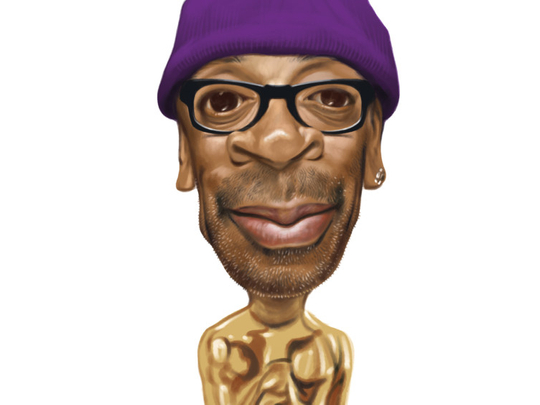
If the Academy of Motion Pictures ever decides to award an Oscar in the category of Best Whiner, let me nominate director Spike Lee. And should he win it — he’s the leading contender, given his mutterings over the past week — the statuette can sit on his mantelpiece alongside his other Oscar awarded to him by the academy back in November.
True, back then, when he was accepting the award, he noted that “it was easier for a black person to be President [of the United States] than it is to be head [of] a major studio”. But Lee has gone further over the past week, suggesting that the Oscars should be boycotted because there are no black nominees in the list of nominations announced a week ago in Los Angeles. According to press reports on Thursday, however, Lee said he never suggested that the Oscars should be boycotted.
Lee, in my opinion, is in the same boat as Michael Moore — but not as black and not as annoying.
Some biographical information: He was born in Shelton Jackson Lee in Atlanta, Georgia in 1957 and was making amateur films by the time he was 30. His portfolio covers topics that explore violence, politics and race, and his biggest commercial hit was X, which starred Denzel Washington as black civil rights activist Malcolm X.
I’m not saying that Lee can’t find his way around a camera, but I think he’s making a misguided point about the Oscars themselves.
Movie-making business
Let’s face it, big studios and big-budget productions dominate the Oscar field — always have and likely always will. Read any entertainment or trade publication regarding films and the movie-making business, and there’s a whole industry build-up of marketing and commercial experts who plot and plan just when and exactly how a big budget movie will be released to “garner Oscar attention”. Actors will do carefully-crafted appearances and interviews, the films will be targeted for release at just the right film festival — Sundance, or the Toronto International Film Festival, Cannes or Venice — all to sway the right people at the right time. In other words, the script is written and the release directed almost as carefully as the movies themselves, all to ensure that the movies have that perfect Hollywood ending — an Oscar nomination.
Walk into any lobby of any cinema and you’re barraged with marketing hype — the movie you’re going to spend your money on, has been nominated for a dozen Oscars, or features the Oscar-winning actor and Oscar-nominated screenwriter.
Simply put, it’s a business. A big business. And that’s just the process of Oscar nomination. Imagine the lobbying that goes into effect when the actual members of the Academy go about their business of voting.
Somehow, I think Sepp Blatter could find a job in the Hollywood lobbying industry if his troubles with Fifa and football don’t work out. A little backhander would never go too far astray. Should we be surprised that is the case? Hardly, movies, by their very definition, are an escape from reality; a portrayal of alternative lives; interpretations of the past; dreams of the future; a glorification of others; a celebration of everything that our mostly mundane lives are not.
Here’s a thing too. Look at the demographics of the United States and 11 per cent of the population there are considered to be black. According to the most recent analysis carried out by the Academy itself of its voting members, 92 per cent are white. Extrapolate and compare the statistical rates — will that, if adjusted into the voting membership, actually have made a difference in the nomination outcome?
But consider this too: The largest minority in race terms in the US are Hispanics, who make up one-in-four at present. I’m not hearing cries to boycott the Oscars from the leaders of that community because a quarter of the nominations for the awards weren’t Hispanic.
And somehow, I’m beginning to think that maybe, just maybe, Lee’s howls of indignation smack just a little of sour grapes. Lee was possibly hoping for an Oscar nomination for his latest work, Straight Outta Compton, which tells the story of NWA, a group of rappers from Compton, California, that rose to dominate hip-hop culture in the mid-1980s. I haven’t watched it.
It doesn’t interest me. It might be something I’d fall asleep over on a long-distance flight, if there was nothing else. This from the Daily Telegraph review: “Jonathan Herman and Andrea Berloff’s screenplay is so sharp on race that you regret its apparent lack of equivalent interest in sex, and the film’s view of women as either anxious mothers or twerking groupies, with a couple of supportive wives to coo and rub shoulders during the group’s down-time, is as dim as the worst of their lyrics.”
Not quite a ringing endorsement. Maybe, just maybe, the reason there are no black Oscar nominees this time around is because the movies just aren’t good enough. Or commercial enough.










